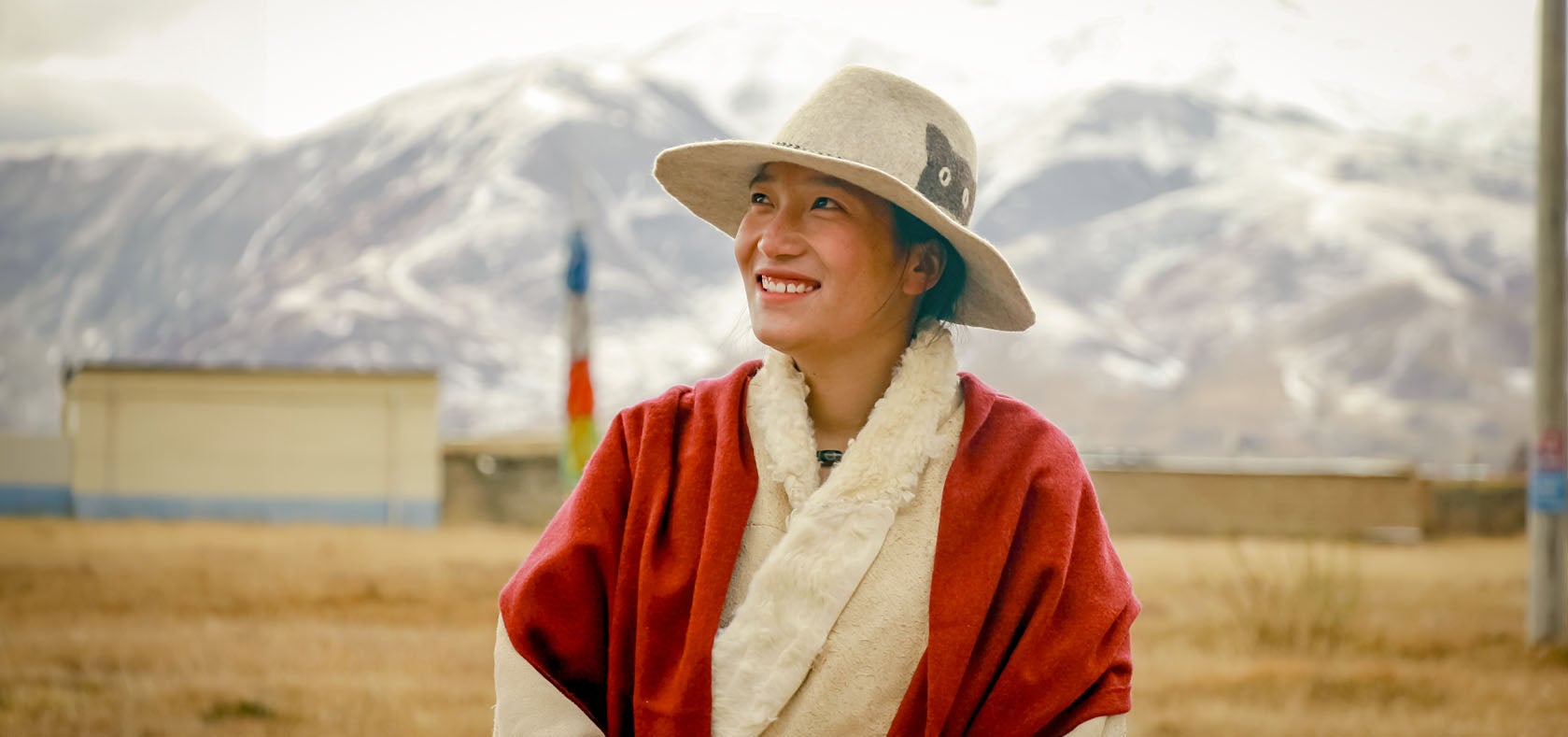Beijing+30 Youth Blog: One woman’s journey to champion climate action and zero-waste living in China
Date:
Authors: Mengwen Chen and Wenting Zhao

"Environmental work is meaningless and income-less. Why don't you go home and help your mother with housework?" This is what I frequently heard when I firstly began volunteering with the Qinghai Snowland Great Rivers Environmental Protection Association (SGR Association). Many couldn't understand why I dedicated my time to protecting our water sources, attending various trainings, and creating eco-friendly products to promote sustainable living. But I didn’t let their doubts stop me. The urgency of climate action is too significant to ignore.
I live in Qinghai Province, on the Tibetan Plateau in China. My journey into environmental work began in 2018 when I volunteered to start writing an eco-diary. I record daily observations of the local wildlife, and plants, changing weather patterns, and fluctuations in nearby water sources. Through this practice, I became deeply aware of how climate change was affecting my community.
Starting last year, our local water sources began to dry up, and the grassland in our summer pastures became increasingly scarce. The rising temperatures and decreased rainfall left our livestock with insufficient water and food. As a result, villagers were forced to travel further to get water and purchase additional grass to feed their cows, increasing family expenses. Moreover, the reduced yield of caterpillar fungus—used in traditional Chinese and Tibetan medicine—led to significant financial losses for many in the community.
Before I started documenting these changes, I hadn’t realized how profound the environmental differences are. Through firsthand observations and learning, I became a passionate advocate for climate action.
In 2020, my family became the first zero-waste household in Nasuoni Village. Going zero-waste means minimizing all forms of waste in our daily lives, avoiding the use of plastic and disposable products, and following the ‘3Rs’ principle: reduce, reuse, and recycle.
Many of the villagers were unaware of the lasting impact caused by plastic waste, which pollutes our grasslands and water sources. My family made simple changes, like avoiding packaged snacks and bringing our own ingredients for meals when we went to the mountains, that inspired others to follow. We also stopped using plastic bottles for sharing yogurt and milk, encouraging the use of reusable containers.
In 2021, I proudly became an official member of the Sanjiangyuan Women Environmentalists Network, a group organized by the SGR Association and funded by UN Women's China Gender Fund for Research and Advocacy Programme. This experience opened my eyes to the critical importance of women's voices in climate action and highlighted the barriers they face in accessing training, knowledge, and education.
Myself and other members of the SGR Association started advocating for reduced plastic usage and distributing materials like stainless steel bowls, eco-friendly bags, and hand towels to encourage people in the village to adopt zero-waste lifestyles. Nasuoni Village now has a total of 198 zero-waste households.
In our community, it’s rare for women to engage in climate work. Women here shoulder significant domestic responsibilities: milking cows, tending livestock, cooking, and caring for children and other family members. Even though many advised me to give up my work and return to domestic duties, I've been fortunate to have my family's support, which has encouraged me to pursue my passion for environmentalism.
In November 2023, I was deeply honoured to be recognized as one of 27 Climate Pioneers on the BBC 100 Women list. This recognition not only validated my efforts but also strengthened my confidence to continue my work and inspire more people, particularly women, to take on leadership roles in climate action.
As an environmentalist, my message to those eager to join the climate action movement is this: Remember it all starts with the small and everyday actions. Begin by reducing waste and exploring zero-waste living. Through gradual, consistent steps, we can make eco-conscious practices part of our daily lives, building a sustainable future for ourselves and future generations.
Bayang (she/her) is an environmentalist from Qinghai Province, China. In 2021, she joined the "Sanjiangyuan Women Environmentalists Network" with support from UN Women China. In 2023, UN Women China and the Qinghai Rural Revitalization Bureau launched the "Women-Led Renewable Energy Transformation and Governance in Rural Communities" project, aiming to enhance women's access to and use of renewable energy to boost agricultural productivity, mitigate climate change, and promote women's leadership in the green transition.
China's resolve in clean energy and climate action and its commitment to the target of achieving carbon neutrality before 2060 present an immense opportunity to advance gender equality and women’s empowerment in the fight against climate change. Young women like Bayang are crucial contributors to sustainable solutions, driving forward climate action in China and globally.